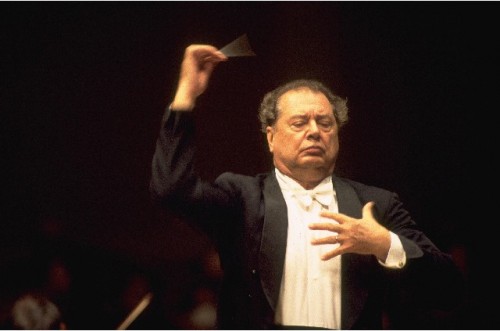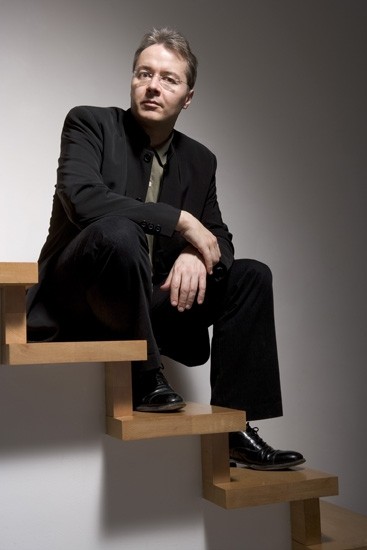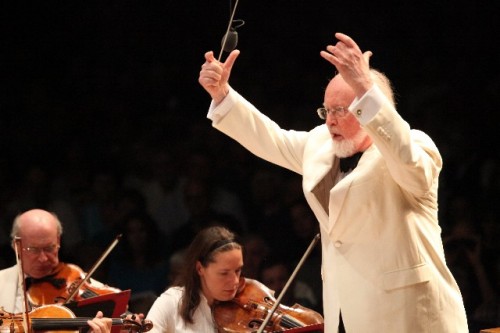Tanglewood on Parade
Day Long Annual Family Event
By: Charles Giuliano - Aug 03, 2011
It was a long day and glorious evening at Tanglewood. The gates opened at 2 PM for a variety of music and family oriented events.
It culminated with Rafael Fruhbeck De Burgos conducting the massive combined Boston Symphony Orchestra and the Tanglewood Music Center Orchestra in Tchaikovsky’s visceral “1812 Overture” punctuated with the firing of canons, the simulation of triumphant church bells, followed by a display of fireworks.
On a Tuesday, midweek work day, the Lenox estate was mobbed with vacationers and parents taking the day off. By a rough visual head count the Shed and lawn appeared to be as populated and popular as the Fourth of July sellouts for James Taylor.
The wisdom of this appears to be that if you offer broadly appealing and inventive programming audiences will respond. In droves.
We arrived in time for the evening concerts that feature a Parade of guest conductors. For this concert they included: Stefan Asbury, Christoph Eschenbach, Rafael Fruhbeck De Burgos, and John Williams.
It is an occasion within the span of an evening to compare and contrast the techniques and effectiveness of four conductors. Another trope of the annual event is that they perform generally familiar and accessible works.
With the exception of the presence of John Williams it is kind of like an evening of Pops but not really.
There is nothing light, for example, in the Prelude to Die Meistersinger von Nurnberg. While it was presented previously in its entirety in a concert version, on this occasion, the selection of Wagner was relatively brief, insightful and devoid of singers. There was nothing Bud Light in the selection or the firm grasp of precise conducting by Rafael Fruhbeck De Burgos who is both old and old school.
Immediately there was a sense of contrast with the lighter and more sensual, poetic approach of Stefan Ansbury who followed with the Vaughan Williams Serenade to Music for 16 solo voices and orchestra. It was dedicated to long term Tanglewood vocal coach Phyllis Curtin who is now 90. The conductor introduced the famous singer who was present for the occasion.
The text is selected from The Merchant of Venice by William Shakespeare. It begins with the line “How sweet the moonlight sleeps upon this bank!” We followed the lines which were printed in the program as the singers magnificently articulated the poetry.
With its evocation of Moonlight it was indeed a perfect selection of an August evening. It was a fitting tribute to Curtin who, surrounded by well wishers, appeared to completely enjoy the occasion.
Given that many of the musicians on stage were Tanglewood fellows Christoph Eschenbach appeared to be particularly flamboyant and articulate in conveying to the players exactly what he wanted from them during Romeo and Juliet by Tchaikovsky. This was particularly evident when, with a flourish of the baton, he evoked the dramatic entry of the tympani. The strains of the ballet music were rendered exquisitely. Again it was particularly connective to much of the audience as it played on the familiar. It was indeed the highlight of the program other than that barn burner The 1812.
No Tanglewood on Parade ever seems complete without the enormously popular John Williams. He played his own compositions opening with Sound the Bells followed with film music the suite from E.T. The Extra-Terrestial. In the second section of the music there was a stunning harp sequence featuring Jessica Zhou.
Of course the segment featuring Williams served as a preview of his always popular Film Night. It is a popular highlight of the Tanglewood season which I make it a point never to miss. Last year I even passed up a Saturday night of Wilco to attend Film Night. Friends wonder at my sense of priorities but, in my defense, I am a true movie fan and Williams always provides fascinating insights on the role of scores and how they enhance films.
As Williams exited the stage was prepared for the huge combined orchestra setting up for the finale. It is always amazing to see so many musicians on stage, young and old. And of course a daunting challenge for any conductor to mesh so many instruments, with varying degrees of experience, into a cohesive musical entity. Of course it helps that everyone knows The 1812 from the musicians to the audience. It is second only to the National Anthem.
Again Rafael Fruhbeck De Burgos was firmly in charge as he found all the right accents in the beloved score. In some kind of neo platonic trope we both listened and responded to the music and also contrasted it with a memory chip of so many other performances. Just how did this blast of brass and clash of cymbals compare to all other such experiences?
There was also the option to just sit back and enjoy. To wonder where the canons were located and the timing in which they were fired. In the premiere performance the composer surrounded the concert hall with the captured canons of Napoleon. And the church bells of Moscow were rung on cue. It must have taken impressive precision and concentration. One may just imagine the surprise, thrill and rush of patriotism it inspired on that occasion.
The music has thrilled audiences ever since as a powerful signifier of good triumphing over evil.
It is a message that has particular relevance today as the world continues to struggle with war and global adversity. There was also an irony that it was performed just a day after the conclusion of a Congressional meltdown and the erosion of our patriotism held hostage to the Tea Party and its fanaticism.
As it was in 1812 so it is today. And tomorrow.





